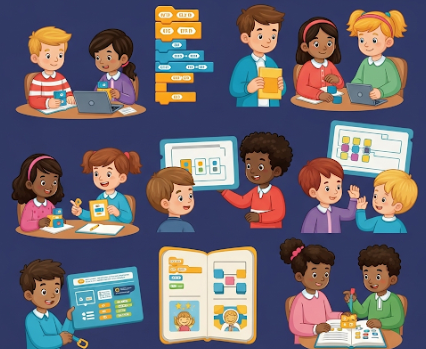C-Thinking Game for Literacy Education: Computational Thinking Learning in Elementary School
Keywords:
Game, C-Thinking, Multimedia Development Life Cycle, UnityAbstract
The results of the PISA (Program for International Student Assessment) global study conducted by the (Organization for Economic Cooperation and Development) in 2019 were attended by 78 countries, Indonesia ranked 74th in the reading category, 73rd in the math category, and 71st in the science category. In 2021 PISA incorporates computational thinking into its survey. So Indonesia must be able to introduce computational thinking in order to catch up with other countries. This research aims to develop an educational game that is an introduction to computational thinking for 5th-grade elementary school children and can increase creativity and center thinking processes in simplifying big problems into simple ones. The design method that will be used in this study is the Multimedia Development Life Cycle (MDLC) of Sutopo (1994), applications are made using UnityandAdobeIllustrator to design application features. The results of the application trials are in the range of 81%- 100%which means "agree" to be used.
Downloads

Downloads
Published
Issue
Section
License
Copyright (c) 2024 ASTEEC Conference Proceeding: Computer Science

This work is licensed under a Creative Commons Attribution-NonCommercial-ShareAlike 4.0 International License.


